News
All newsOct 12, 2023
PARHY project
Launch of PARHY collaborative project September 21, 2023 – Hauts de France
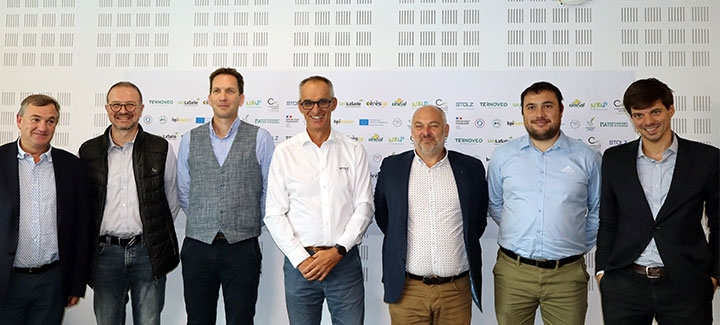
At the ADVITAM Group’s Headquarters near Arras, the STOLZ, UNILASALLE, LA COOPERATION AGRICOLE DES HAUTS DE FRANCE, and URAP consortium (Unéal, Ternoveo, Nat'Up and Cérèsia) celebrated the launch of the PARHY collaborative project ( Regulated Ozone Application Project for Cereal Hygiene), an innovative project putting French excellence at the service of the cereal industry.
As part of a demand for transparency in agricultural practices with a view to more sustainable and eco-responsible solutions, the PARHY project aims to respond to one of the major issues facing the agricultural market: controlling the appearance and development of insects in cereal storage facilities.
The PARHY project therefore proposes to limit the presence of grain insect pests (such as the weevil, the grain beetle and the Australian wheat weevil) in stored cereals by applying gaseous ozone. This innovative solution and unique in the world, aims to reduce environmental impact, eliminate the use of insecticides, and improve grain preservation conditions.
It was developed thanks to the research and development work on ozone by the UniLaSalle Institut Polytechnique and to the equipment designed by STOLZ, a company specialising in solutions for the agri-food industry.
Developed as part of the French Government's call for projects "Innovating for a successful agroecological transition", the PARHY project is supported by “the Future Investment Program and the Recovery Plan" and has been allocated a budget of 2.8 million euros, managed by Bpifrance.
“This grant marks the commitment and support of the French State for a more reliable and healthier agriculture and agri-food industry,” says Jérémy Carlier, Project Manager at BpiFrance, who attended the launch meeting.
The PARHY consortium has also obtained the B4C Bio Economy label for Change and Vegepolys Valley competitiveness clusters.
Construction and installation work on the demonstrator will begin in autumn 2023 on the URAP Moislains site (80). Led by the URAP storage organizations (Unéal, Ternoveo, Nat'Up and Cérèsia), the URAP Moislains site is ideal for experimentation thanks to the diversity of crops grown there (cereals, oilseeds, protein crops) and its proximity to major motorway networks and the Seine Nord-Europe canal.
For three years, the members of the consortium will work together to test and develop this unique and innovative solution on an industrial scale, with the first phase of intensive experimentation starting in spring 2024.
By 2026, the PARHY consortium's aim is to roll out this technological solution to all players in the French cereal industry and then internationally and provide French engineering at the service of the agroecological transition.
On the image from left to right: Martial Werkeyn (Urap), Cédric Guillemont (La Coopération agricole Hauts-de-France), Benoît Herzig (UniLaSalle), Alain Stolz (Stolz), Nicolas Debrabant (Urap), Maxime Thuillier (Urap ) and Jérémy Carlier (Bpifrance).
-

-
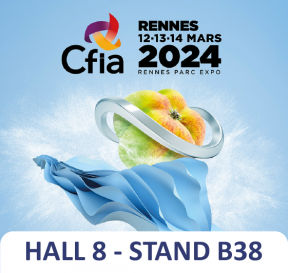
STOLZ at CFIA 2024
Come join us at CFIA 2024, the trade show dedicated to innovation in the agri-food industry, which will take place at the Parc Expo in Rennes from March 12 to 14, 2024.
-
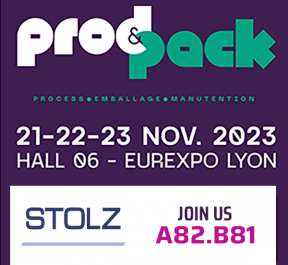
PROD&PACK 2023 EXHIBITION
Stolz will be there! Visit us on stand A82.B81 - Hall 6
-
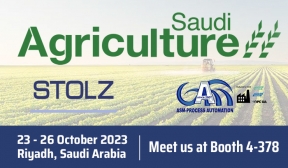
-

PARHY project
Launch of PARHY collaborative project September 21, 2023 – Hauts de France
-
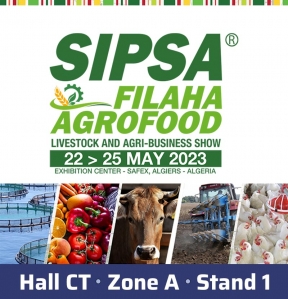
SIPSA FILAHA AGROFOOD 2023
From May 22th - 25th, meet us at the SIPSA Filaha Agrofood exhibition at the Palais de Expositions - Safex in Algiers, Algeria. HALL CT, ZONE A, booth No. 1
-
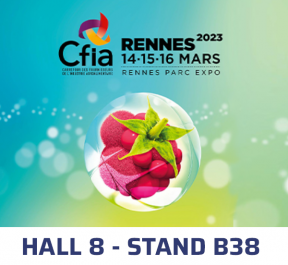
CFIA RENNES 2023
Visit us at CFIA 2023, an exhibition dedicated to innovation in the food industry, which will be held at the Parc Expo in Rennes from 14 to 16 March, stand B38 - Hall 8.
-
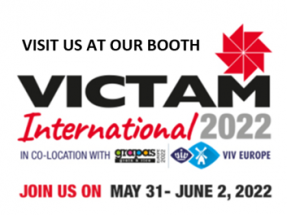
VICTAM INTERNATIONAL 2022
From May 31 to June 2, Stolz will be part of the Victam International trade show at the Jaarbeurs, Utrecht (The Netherlands) on stand Hall 01-250
-

New shareholder for our Desmet Group
Today is a "Big Day" for Stolz and its shareholder Desmet : Alfa Laval to acquire Desmet
-
CFIA 2021
Come and visit us at the CFIA in Rennes from 9th to 11th June Hall 8 - Stand D17


